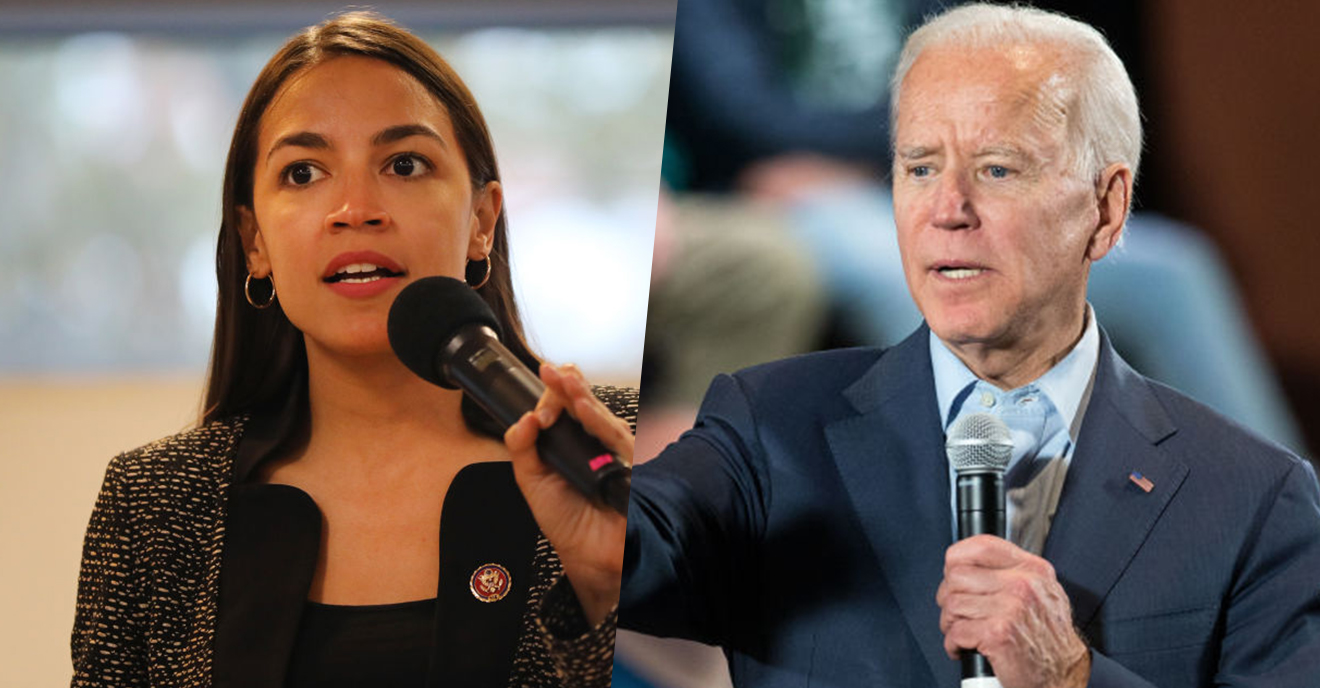Rep. Alexandria Ocasio-Cortez in a New York Magazine interview has once again pointed out what she describes as a division in the wings of the Democratic party.
Ocasio-Cortez, the freshman New York congresswoman, was asked about how her role in Congress would change under a Democratic administration led by former Vice President Joe Biden.
“Oh God,” Ocasio-Cortez said. “In any other country, Joe Biden and I would not be in the same party, but in America, we are.”
Ocasio-Cortez, who endorsed Sen. Bernie Sanders in the 2020 primary race, critiqued Biden — but not for the first time.
In May, after authoring the Green New Deal, she expressed her distaste after it was reported by Reuters that Biden was crafting a “middle ground approach” in his way forward combatting climate change.
CLIP: Rep. @AOC on #GreenNewDeal: "I will be damned if the same politicians who refused to act then are going to try to come back today and say we need to find a middle-of-the-road approach to save our lives. That is too much for me."
Full remarks here: https://t.co/ibNT3CHYWA
pic.twitter.com/O9yiXMhzhe— CSPAN (@cspan) May 14, 2019
“I will be damned if the same politicians who refused to act then are going to try to come back today and say we need to find a middle-of-the-road approach to save our lives," Ocasio-Cortez said. "That is too much for me."
Ocasio-Cortez continued in the interview to change the narrative of the divide, by claiming power for her side.
"For so long, when I first got in, people were like, ‘Oh, are you going to basically be a tea party of the left?’ And what people don’t realize is there is a tea party of the left, but it’s on the right edges — the most conservative parts of the Democratic Party,” Ocasio-Cortez said. “So the Democratic Party has a role to play in this problem, and it’s like we’re not allowed to talk about it. We’re not allowed to talk about anything wrong the Democratic Party does."
Ocasio-Cortez also pointed to her election as a turning point that she believes will allow more left-leaning progressive Democrats to criticize and change the party.
“I think I have created more room for dissent and we’re learning to stretch our wings a little bit on the left,” Ocasio-Cortez said.
A current polling average by Real Clear Politics still has Biden in the lead nationally, but recent polls by CBS have given Sanders the edge in early states like Iowa and New Hampshire.
